By WANG KUAN
By WANG KUAN
THE New York Times introduced Mai Jia as a bestselling author of espionage novels and a former military man who has been writing about secrets for years. The coded world he has created in his works is unknown to most Chinese, let alone foreign readers.
During the week-long Beijing Publishing Fellowship last June, Mai reviewed his literary career and offered a few thoughts on his works published overseas. “My novel Decoded was composed in a period of 11 years and had been rejected 17 times. It was a miserable experience unknown to most people and even for a writer, this is rare,” said Mai.
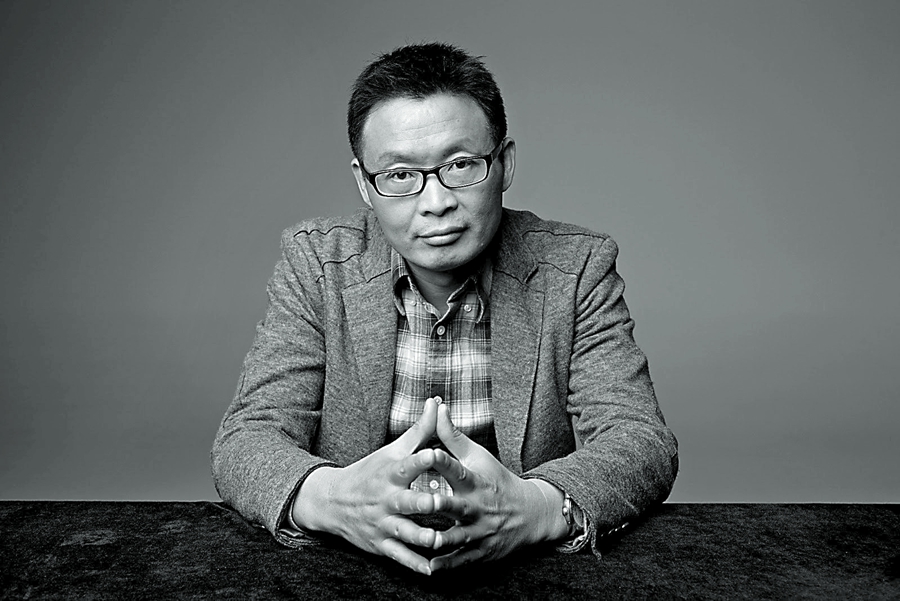
Mai Jia, a bestselling writer of espionage novels.
In recent years Mai Jia seems to have retreated from the media limelight. He started a non-profit bookstore in Hangzhou, designed to provide a complimentary space for young writers.
Heartbeat of a Story
Decoded has been translated into 33 languages and won Mai worldwide fame. The main character, Rong Jinzhen, is a mathematical genius plagued with depression. Having been recruited by classified agencies, he was tasked with breaking two sets of top codes, which led him onto a breathtaking journey.
Most protagonists in Mai’s novels are solitary heroes who are highly intelligent. He confessed that he is obsessed with this type of personality, which he sees a little of in himself. On one side, the characters are extremely talented; on the other, they are incredibly vulnerable.
Solitude in Mai’s own character has made its way into each one of his works. He likens his genius to tungsten wires, which if illuminated too much, would burst into flames.
After Decoded, Mai created several espionage novels including In the Dark, Sound of the Wind, and Whisper of the Wind, each becoming bestsellers and their television adaptations sweeping the public by storm.
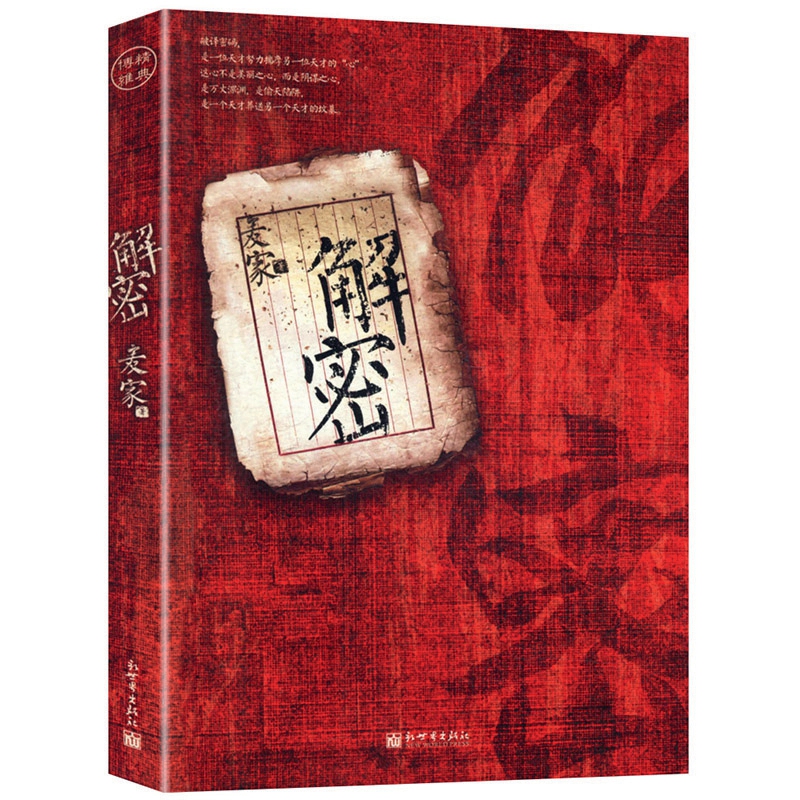
Decoded.
The successful commercialization of spycraft-themed productions was beyond Mai’s imagination. He believes this has continued to change over time.
According to Mai, literature is about how to tell a good story. If you can tell the same story but in an offbeat or unfamiliar way, this is what is classified as modern, or avant-garde.
In the early 1990s, Mai spent three years in Tibet. For a full year he was immersed in the short story collection The Book of Sand by Borges, a world-renowned avant-garde author with brilliant story-telling techniques. “He has been hailed as ‘the writer of writers,’ with a very high status within the literary community,” Mai said. “Upon closer inspection, Borges actually told philosophical stories resembling the Tales from One Thousand and One Nights.”
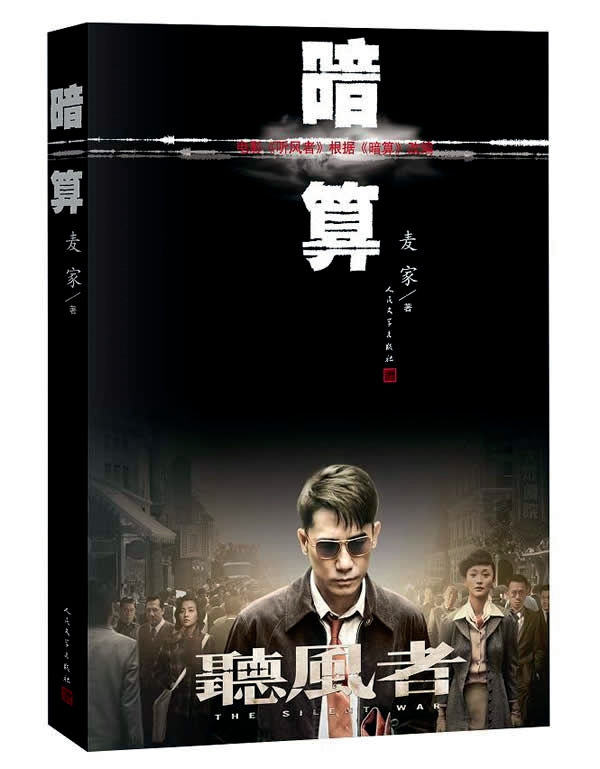
The Silent War.
Some liken Mai Jia to Dan Brown, author of The Da Vinci Code. Mai said he is not worthy of the praise, and that Dan Brown is not his icon. He has no wish to create a new genre of literature, but instead wishes to focus on the destiny of humans and to explore the profundity of humanity.
After Decoded was published, reviews mostly highlighted Mai’s eternal, universal theme of humanity and solitude rather than plots of decoding.
“In usual stories, there are sounds of footsteps; but good novels should have a heartbeat,” Mai said. “Why do we still shed tears at the scenes of A Dream of Red Mansions, Anna Karenina, and Peony Pavilion? Because of the reunion and the departure, the love and hate, and the sentiments and vengeance that we have today still relate to the humanity 500 years ago. Good books transcend time and remain in people’s heart.”
The Must-Read Chinese Author
On a trip to Paris, Mai visited his favorite bookstore, Shakespeare Books, which was turned into a salon for book lovers by its owner George Whitman. The free and pure ambiance of the bookstore attracted Mai.
Born in the countryside, Mai’s struggle as a writer was not smooth, which is why he truly empathizes with the pangs of today’s literary youth.
“Young people who love literature start in solitary and adversity. As for me, I didn’t know if what I was writing was good or bad, nor did I know where I should send it. I always think literature has given me so much and I should give something back, especially to young writers.”
Penguin Books and FSG Books published Decoded in March 2014 and the English translation of the novel has been sold in over 35 countries, including the U.S. and U.K. Incorporated as “Penguin Classics,” Decoded set the record for a Chinese literary work in foreign markets within 24 hours. Mai said for Chinese literature going global, one must adopt themes more accessible to foreign readers.
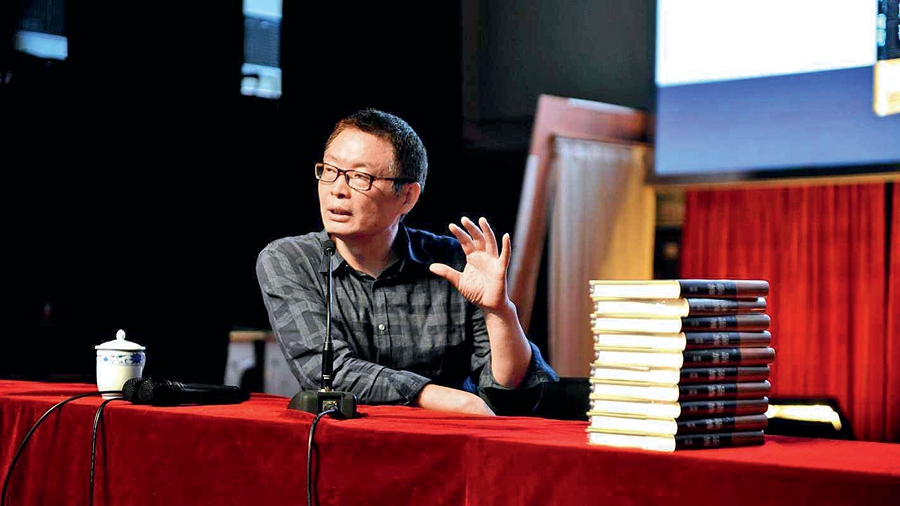
Mai is also an active promoter of reading.
After the English version of Decoded, 21 publishers in the U.S., U.K., Spain, France, Russia, Germany, Israel, Turkey, Poland, Hungary, Sweden, and the Czech Republic have started to promote Decoded and In the Dark in their home countries. So far, Decoded has been translated into 33 languages.
“Compared to the popularity of foreign literature in China, the impact of Chinese literature in the world is still limited. Against this background, the degree of overseas attention on Decoded has exceeded my expectations.” Mai admitted that he might have been aided by a stroke of luck.
He said, first and foremost, he would like to pay his gratitude to Olivia Milburn, the English translator of Decoded, as “a translator is the second parent of the original work.”
As a British sinologist working at Seoul National University, Milburn mainly focuses on Chinese pre-Qin period (21st century-221 BC) studies. Due to the flight delay, she picked up Decoded from the airport bookstore of Shanghai and finished it in one go. When she returned home, she translated several chapters as a form of entertainment. Her classmate, sinologist Julia Lovell took the translation to an editor of Penguin Books, who showed great interest in her work.
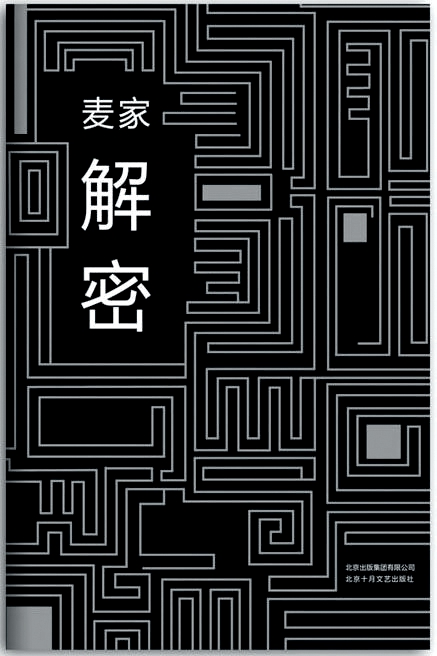
Decoded.
Mai believes that it is better to translate from the original language. Among all 33 versions of the novel, seven or eight were translated from English, which he believes lost some of the story’s original flavor.
Apart from translation and promotions by major foreign publishers, the theme itself has transcended regionalism, which is quite helpful for those without knowledge of Chinese history.
In recent years, Mo Yan, Cao Wenxuan, Liu Cixin, and other Chinese writers have received many honors and awards for their literature. Mai believes that their success is an ice-breaking journey for Chinese literature. From now on, he hopes Chinese literature will attract more worldwide attention as the international status of China rises.
To Encourage Reading Is a Deed
Many readers assume Mai is highly intellectual. On the contrary, Mai is, as he put it, quite clumsy in real life.
“My intelligence is mildly below average, which I am not ashamed of. In our era, there are so many smart people and smart things like the Internet or smart phones. But they complicate and rush our lives. I often say the value of intelligence is sometimes negative.”
“An opinionated writer,” is Mai’s comment of himself. Having been writing for a dozen years with no success or accomplishments, Mai did not give up. He does not enjoy the hustle and bustle of being famous because, “a writer should not indulge himself in fame; writing is done in solitude.”
Mai writes slowly, at a daily pace of hundreds of characters. If he writes one thousand, in the afternoon a half might be picked out. Mai remarked: “Before, my novels are my package, or a piece of diploma which makes me a little different from others. But now, I live my own life where anguish and happiness are spontaneous. Now, I realize novels are not my personal belongings, rather, they are some worldly possessions that I’ve been longing for.”
Since 2012, he started the Mai Jia Literature Ideal Valley, a bookstore he built from the ground up. This is a public project shaped after the Shakespeare Books. The store is free of charge. Gratis coffee and book-reading aside, it provides a complimentary writing space for young writers that have been shortlisted in the Guesthouse Producers program. The place is a magnet for book lovers and is always full.
To encourage people to read more, the Ideal Valley launched the seven-days-for-one-book program. By reading every morning for 15 minutes, a book can be completed in one week and 52 books in one year. Just as Borges put it, if there is paradise, it must look like a library.
WANG KUAN is a freelance writer.